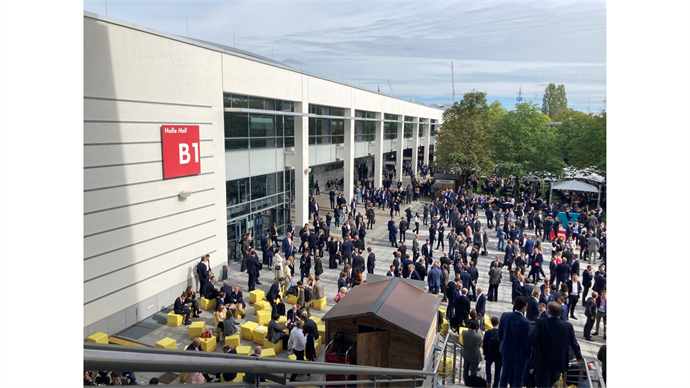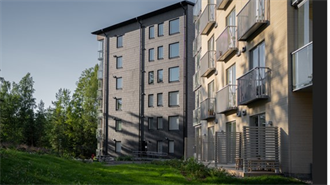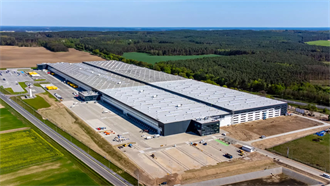Against a background of rising interest rates and inflation, long-term investors still have confidence in real estate's prospects.
It is clear this is an Expo Real where macroeconomic factors are overarching themes.
And what is also clear is that delegates have differing takes, depending on their area of expertise and whether they represent a long term or shorter-term investor.
Simon Wallace, who formerly headed up economics & research at UK property company Hammerson, and who is currently global co-head of alternatives research and strategy at DWS, sums up the mood perfectly: ‘It does feel like we’re in the eye of a storm.’
However, Wallace seems sanguine.
Though his opening remark shows this is perhaps not a time for the faint of heart, he suggests: ‘I think we should be careful of calling this a crisis.’
He thinks many people are pausing rather than making any dramatic moves.
Yes, inflation and rising interest rates are an issue, but they have been focused on by investors for at least a year. What is newer is the R word: recession.
For instance, many people believe the UK is in recession and that European markets are almost sure to follow suit next year.
On that note, last week before delegates headed to Munich, the UK position was clarified. The ‘good news’ on Friday from the UK Office for National Statistics (ONS) was that economic output between April and June 2022 has been revised from minus 0.1% to plus 0.2%.
But for those operating in the UK this has hardly caused people to uncork the champagne. The UK government’s recently announced new tax break plans caused economic pandemonium, with Sterling plunging so dangerously the Bank of England had to intervene to calm markets with a £65 bn (€84 bn) bond purchase intervention, though it has since stabilised.
At least delegates have filed into Expo Real thinking the deployment of a nuclear weapon by Russia in the context of Ukraine might not be happening! Last week, PropertyEU was told that at an event hosted by Eastdil Secured, a guest speaker who was formerly Supreme Allied Commander at NATO and who now works for Carlyle, explained he knew President Putin personally. He put a certain percentage on the likelihood of something crazy happening, that while not altogether fantastically low did provide some crumbs of reassurance.
Which sectors offer value?
But back to macroeconomics.
Wallace said: ‘What’s new for me is moving into a recessionary environment. I don’t think we can rule out the possibility that inflation falls back pretty quickly in an inflationary scenario. In some cases, the price of certain things are deflating now. Instead, what is on the horizon are recessionary issues such as rising unemployment.’
‘For real estate, a recessionary environment becomes your ability and skill to maintain income from the portfolio and how resilient the assets are.’
Residential - particularly affordable residential – is still in favour (though a low yielding asset class).
There is a bit more nervousness about certain types of logistics in certain areas. Logistics as an asset class has become two-dimensional in that occupancy fundamentals are so strong yet caution pervades among investors.
Two German logistics portfolios are being newly marketed at Expo and are seen as being tools to discover any yield movement. These are high class assets. One package is being sold by Baytree Logistics Properties (backed by AXA Investment Managers) and the other by Beos Logistics (backed by Swiss Life).
There is also lingering nervousness around retail as a sector. Meanwhile, offices as an investment category has its own story.
At Expo Real, there is a growing consensus that property values are falling in Europe in certain areas, as evidenced by current transactions.
But are there any sweet spots? Wallace thinks some office assets might be subject to overdone discounts, giving rise to value-add possibilities. This echoes a belief expressed by Shiraz Jiwa, founder and CEO of The Valesco Group in a recent interview with PropertyEU.
Wallace believes there is opportunity in Grade B stock in good cities for a long-term plan to reposition them, taking into account ESG improvements that can be made.
Meanwhile, distress/opportunistic players are circling as solution providers to developers that are under water. That could be another area for opportunity.
Which brings Wallace onto the subject of the long term. Looking out on a 10-year forecast, have exit yields substantially changed? He says ‘No’. Taking into account a price correction and therefore entry point, plus possibly upward rental growth revisions due to long term inflation, the long-term outlook for real estate might look very good – for the right investment, of course.


































